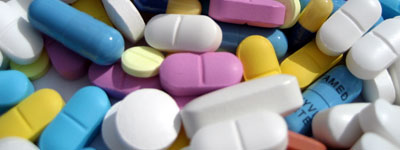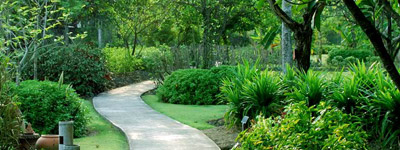Currently, the Faculty consists of 2 buildings, with the Debaratana Building and Rajaratana Building being the two main buildings. The Debaratana Building, a 7-floor building, houses a 350-seat auditorium, two 150-seat lecture rooms, several small lecture rooms, 7 large laboratories, simulation laboratory for clinical practice, the Faculty Drug Store, and part of the central research laboratory and offices for administration and other supporting units. The Rajaratana Building, an 8-floor building, houses a cafeteria, a library, the Medicinal Plant Information Center, the Drug Information Center, the Center of Analysis for Product Quality, a central computer center, and part of the central research laboratory. In addition, there are two 150-seat lecture rooms, 20 small and medium-size lecture rooms, departmental offices, graduate students offices and laboratories for graduate and undergraduate studies in the Rajaratana Building.
In terms of other student resources, graduate students have access to scientific instruments through the Central Laboratory and departmental laboratories, according to their needs and interests. Furthermore, the faculty’s library and our e-journal catalog provide important resources to students at every level. With a network of libraries under the Mahidol University system, retrieving information from journals, databases or other types of scientific media is a convenience that our graduate students can enjoy. With state-of-the-art IT infrastructure, high-speed access to the internet is conveniently available in every teaching room on every floor and in most areas of the Faculty’s buildings.

The Center of Analysis for Product Quality (MUPY-CAPQ) aims to provide scientifically accurate test results for drug quality assessment which meet international standards as well as has provided services in drug quality assessment to both the government and private sectors. Efforts are made to introduce new quality assurance systems, such as ISO/IEC 17025: 2005, into the operation so as to upgrade the services to satisfy its clients.
Tel: +66 02-354-4320

Equipped with a generous collection of drug databases, DIC has been serving the public and medical community alike since 1983, to ensure the dissemination and access to accurate and unbiased information related to drugs and their usage.
Tel: +66 02 644 8685 ext. 5301 Fax: +66 02 354 4325
Email: dicpharmacy@mahidol.ac.th , warunee.bua@mahidol.ac.th

“Sireerukachart” Nature Park started off as “Sireerukachart” medicinal plant garden which has been initiated since 1982. The objectives are conservation of Thai medicinal plants for the study, self-learning and research and development as well as the green and recreated area for students and staffs in Salaya campus.
Tel: +66 02-441-5272,(5273,5274) Email: sireepark@mahidol.ac.th

The MPIC has been gathering information on medicinal plants from various sources since 1979. Today, it has become a state-of-the-art medicinal plant center for the Southeast Asian region.
Tel: +66 02 644 8685 ext. 5305,5316
Email: headpypi@mahidol.ac.th

Established in 1979, the drugstore not only provides services to the community, but it also serves as a practice site for both undergraduate and graduate students in the field of pharmacy practice.
Tel: +66 02 644 8685 ext. 1100
Email: runglawan.tan@mahidol.ac.th






